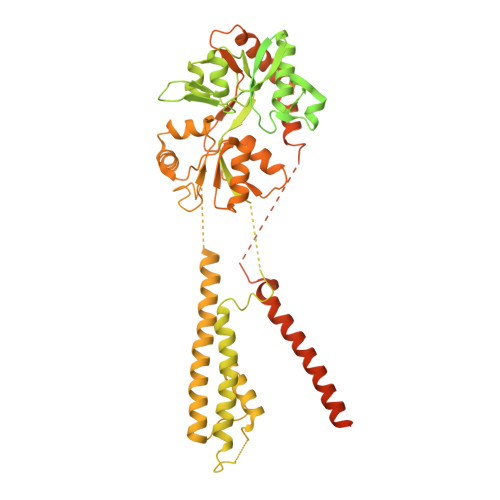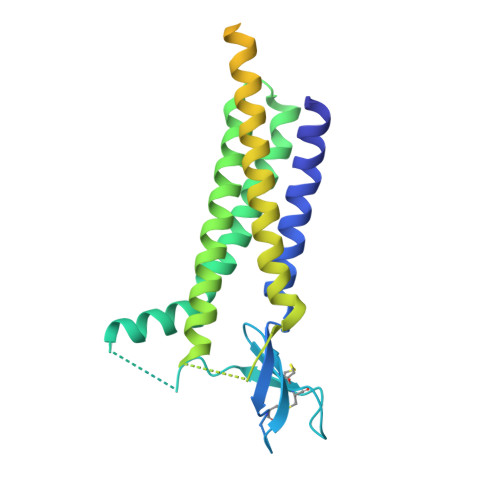Structural mobility tunes signalling of the GluA1 AMPA glutamate receptor.
Zhang, D., Ivica, J., Krieger, J.M., Ho, H., Yamashita, K., Stockwell, I., Baradaran, R., Cais, O., Greger, I.H.(2023) Nature 621: 877-882
- PubMed: 37704721
- DOI: https://doi.org/10.1038/s41586-023-06528-0
- Primary Citation of Related Structures:
8C1P, 8C1Q, 8C1R, 8C1S, 8C2H, 8C2I, 8P3Q, 8P3S, 8P3T, 8P3U, 8P3V, 8P3W, 8P3X, 8P3Y, 8P3Z, 8PIV - PubMed Abstract:
AMPA glutamate receptors (AMPARs), the primary mediators of excitatory neurotransmission in the brain, are either GluA2 subunit-containing and thus Ca 2+ -impermeable, or GluA2-lacking and Ca 2+ -permeable 1 . Despite their prominent expression throughout interneurons and glia, their role in long-term potentiation and their involvement in a range of neuropathologies 2 , structural information for GluA2-lacking receptors is currently absent. Here we determine and characterize cryo-electron microscopy structures of the GluA1 homotetramer, fully occupied with TARPγ3 auxiliary subunits (GluA1/γ3). The gating core of both resting and open-state GluA1/γ3 closely resembles GluA2-containing receptors. However, the sequence-diverse N-terminal domains (NTDs) give rise to a highly mobile assembly, enabling domain swapping and subunit re-alignments in the ligand-binding domain tier that are pronounced in desensitized states. These transitions underlie the unique kinetic properties of GluA1. A GluA2 mutant (F231A) increasing NTD dynamics phenocopies this behaviour, and exhibits reduced synaptic responses, reflecting the anchoring function of the AMPAR NTD at the synapse. Together, this work underscores how the subunit-diverse NTDs determine subunit arrangement, gating properties and ultimately synaptic signalling efficiency among AMPAR subtypes.
Organizational Affiliation:
Neurobiology Division, Medical Research Council (MRC) Laboratory of Molecular Biology, Cambridge, UK.















